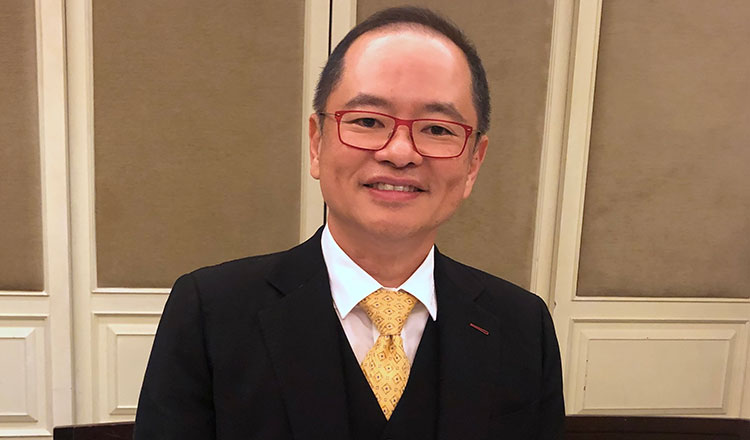PESTECH sees growth in solar, hydrogen fuel cells and battery storage systems

PESTECH (Cambodia) Plc says its interested in attracting investment from sustainable energy companies or even buying up firms in areas like hydrogen power and battery storage as the country moves away from fossil fuels.
With Cambodia getting back to business under the ‘new normal’ the local arm of Malaysia’s PESTECH International Berhad says demand for electricity will grow and it says it’s in a strong position to capitalise on the push for cleaner power.
“We understand EDC [Electricite du Cambodge] have quite a lot of plans, especially moving towards a utility grid storage system. The EDC is looking at it very carefully in order to continue with their sustainability agenda, moving towards renewable energy and battery storage systems, utilising solar as a combination. So we will be preparing ourselves to bid for this kind of job,” said PESTECH (Cambodia) Chairman Paul Lim.
PESTECH already has a presence in the solar sector after its parent company took a 94 percent stake in Green Sustainable Ventures (Cambodia). GSV holds a 20-year power purchase agreement for the 20 megawatt alternative current large-scale solar plant at Bavet City in Svey Rieng Province. Lim says the project will be completed and connected to the grid by next January.
“There will be a push towards a more reliable use of large-scale solar plant deployment in Cambodia as a whole,” Lim said. “We don’t have a concrete plan from the government yet but we do see a lot of interest in solar farms as well as rooftop solar.”
At PESTECH (Cambodia’s) General Meeting last Friday shareholders voted to accept all ten items on the agenda, including giving directors the authority to issue shares to raises funds, partly for future projects, without having to call a general meeting.
“We are always on the lookout for value investors in terms of diversifying our shareholder mix,” Lim said. “We will only look at long-term investment partners. One of our partners when we first listed was a German technology partner called MR. We would like to explore some of these technology partners to invest in the sustainable development of electrical infrastructure especially in the Mekong region.”
Lim says the company is also interested in acquiring companies that meet its corporate vision of sustainable development.
“There are some hydrogen fuel cell guys that we have already started talking to. If they are interested to come in, we may work with them. There are also opportunities for recycling of batteries. As a group PESTECH is very interested in acquiring green technology in this part of the world.”
PESTECH (Cambodia) listed on the Cambodia Securities Exchange in August last year. Lim said he’s not concerned about lack of liquidity on the bourse because he recognises that it is a young exchange. He said the listing was intended more to prove the company’s commitment to Cambodia, which he sees as an excellent place to do business.
“Cambodia is more efficient in terms of investment in assets, competitiveness, resources and manpower compared to our home company in Malaysia. In Cambodia they give us a better base to expand. They want to have factories or technology build up. The ministry here has given us quite a good incentive programme, especially the CDC [Council for the Development of Cambodia] on investment incentives, tax holidays. With our investment in Bavet we got a nine-year tax holiday for bringing in investment.”
As for future expansion plans, Lim says PESTECH is keen on branching out into other Mekong nations.
“From Cambodia we can very easily go into Laos. Previously we were thinking of Myanmar but Myanmar right now is taking a back seat in our plan. But Cambodia is a centre and we can access Thailand quite easily, if not Vietnam.
We chose Cambodia because of the fast progress and it’s still at an early stage of infrastructure build-up…. We will continue to invest. We will continue to build up the knowhow of Cambodian engineers. We can send them out into the region to work within the group because we do operate within the whole of Southeast-Asia,” he said.
